Calls for Papers
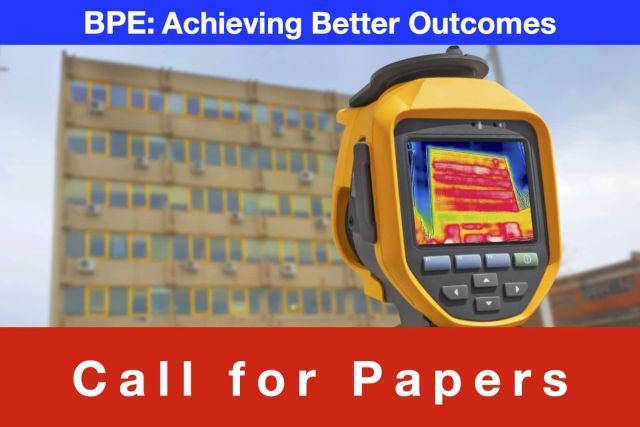
Guest editors: Bill Bordass, Paul Ruyssevelt & Fionn Stevenson
Abstracts due: 23 March 2026 noon (GMT)
What is the potential for BPE to support better outcomes? How can BPE become mainstreamed?
As the built environment confronts accelerating climate change, rising energy demands, health crises and social inequality, the imperative to ensure new and upgraded buildings perform as well or better than intended—both technically and experientially—has never been stronger. Building Performance Evaluation (BPE) offers a powerful way to assess how buildings function in real-world use, and provides evidence-based insights into operational performance, occupant experience, and long-term sustainability.
More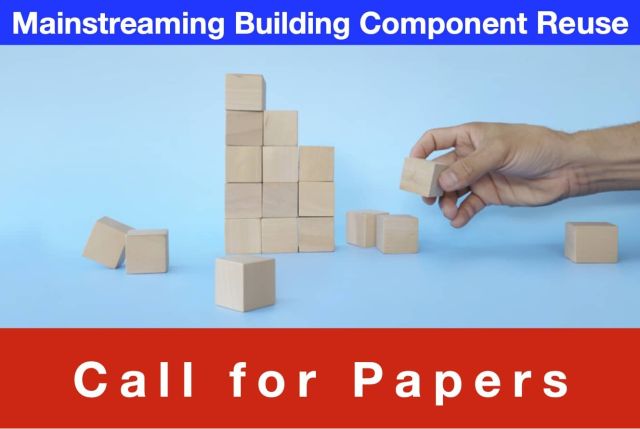
Guest editors: Satu Huuhka, Kjartan Gudmundsson & Paul Jonker-Hoffrén
Abstract submission closed on: 10 FEBRUARY 2026 (noon GMT)
What practices and policies are needed for the viable reuse of building components?
Up- and downstream construction activities generate immense environmental burdens globally e.g. raw material mining, product manufacture, operational energy use, and construction & demolition waste (CDW) treatment. The circular economy (CE) is often proposed as a solution that will enable the construction sector to operate within the planetary boundaries. This special issue engages with the CE debate by investigating the potential of building component reuse in construction.
More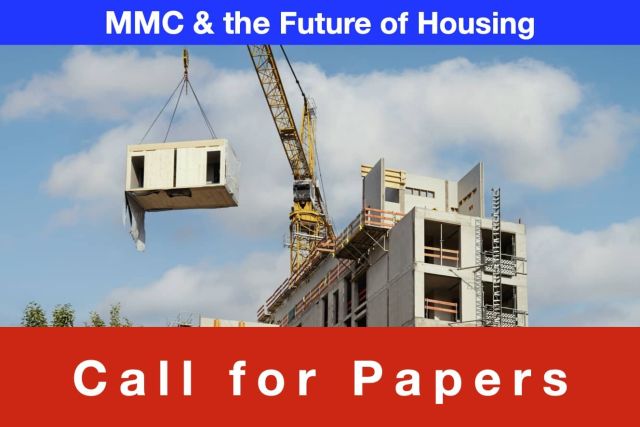
Guest Editors: Rachel Macrorie & Andrew Karvonen
Abstract submission closed on 14 November 2025 (noon GMT)
The provision of housing is often narrowly framed as a set of technological, skills and economic issues. This special issue aims to broaden the discussion by developing a critical social science perspective that investigates the validity of many claims made about modern methods of construction (MMC), and how, and the degree to which, MMC are (re)configuring contemporary housing systems. It examines key issues in relation to housing supply and the retrofitting of the existing housing stock.
More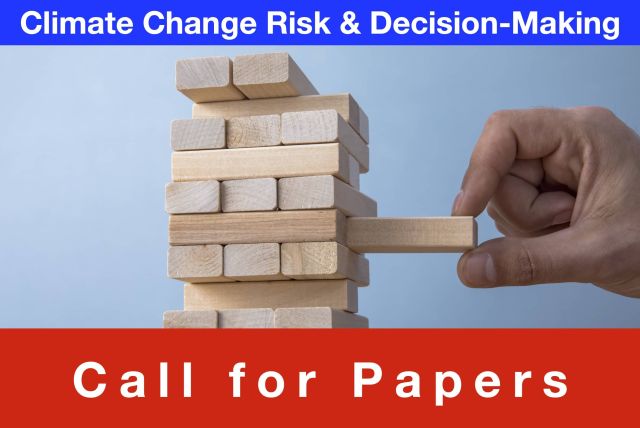
Guest Editors: Simon Foxell and Ian Cooper
Abstract submission closed on 09 June 2025 (noon GMT)
How should built environment actors (individually and collectively) respond to the increasing risks resulting from the changes to the global and local climates? How can the sector improve its understanding of risk factors and potential responses? What obligations do decision-makers have to act and explain their actions relating to avoidance and mitigation of risk? What processes and shared understandings are needed for identifying, communicating and responding to climate risks? What are the appropriate approaches to thinking about and acting on built environment risk (across a spectrum from 'probability times consequences' to 'how far is safe enough' that locate risk in a larger cultural context?
More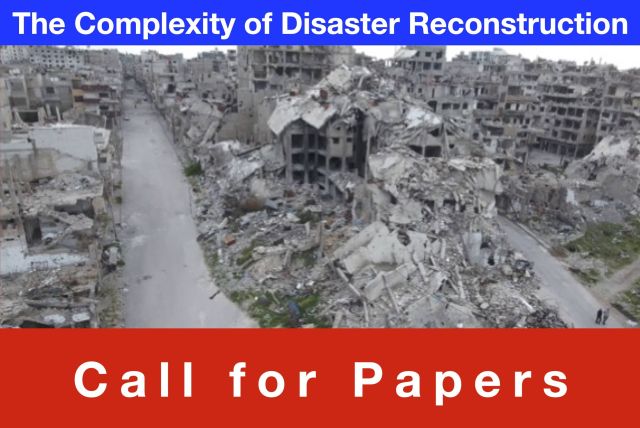
Guest Editor: Paolo Tombesi (EPFL)
Abstract submission closed on 24 MARCH 2025 (noon GMT)
How can the complexity and challenges of physical territorial reconstruction (after disasters) across diverse disciplines, stakeholders and governance be organised and synthesised?
Do current debates and practices on physical territorial reconstruction (i.e. urban and rural built environments after destruction by "natural" disasters, warfare, conflict or industrial accidents) reflect the scope required to address the whole range of complex issues? Does the inherent complexity of the task cause the fragmentation of scholarship and knowledge into an array of disciplines and issues that must be partial in order to remain governable? Is there a need for a theory capable of composing and giving operational coherence and strength to separate efforts? Is there value in rethinking how knowledge can be managed?
More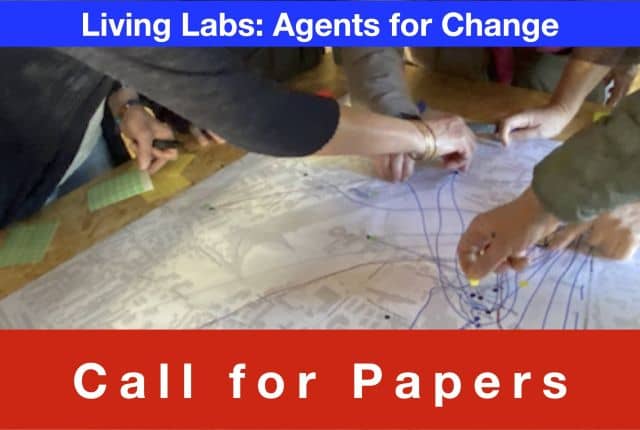
Guest editors: Nicola Antaki, Doina Petrescu & Vera Marin
Abstract submission closed on 10 February 2025 (noon GMT)
What are the roles and impacts that living labs play in increasing civic resilience and supporting ecological transition in different contexts and at different scales?
This special issue examines the roles that living labs have in creating or enhancing resilience in local communities. What mediation methods are used in the different stages of collaboration? How can success or efficacy be measured? What lessons arise about transferability between different labs / situations? What inventive methodologies are developed/used in living labs within different contexts and at different scales?
More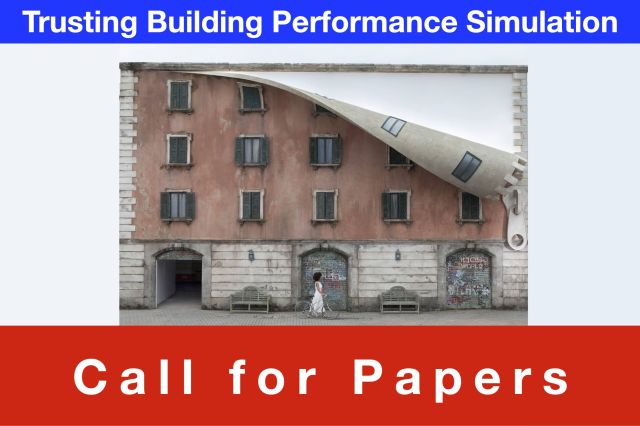
Guest editor: Michael Donn (Te Herenga Waka-Victoria University of Wellington)
28 October 2024 (noon GMT)
Abstract submission closed on 11 November 2024 (noon GMT)
As codes and regulations become stricter, is simulation the right tool for compliance as well as sketching performance to assist design? Can building simulation address the competing demands and tensions that regulators, clients and designers place on it? If not, what alternatives could be appropriate?
This special issue seeks research reporting on quality assurance measures, case studies, user studies that address the development of trust in the performance calculations of designers. Papers are sought that describe the challenges, innovative methodologies, or strategies to enhance reliability and effectiveness. Overall, the papers should show evidence of improvement in guiding sustainable building practices. The "performance gap" typically references energy performance. However, this special issue is open to all design assessment parameters: Indoor Air Flows, Daylight, Energy, Overheating and Acoustics.
More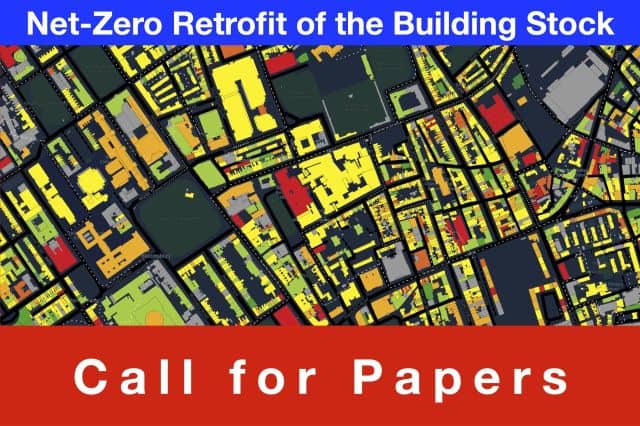
Guest editors: Daniel Godoy-Shimizu and Philip Steadman (University College London)
Abstract submission closed on 28 October 2024 (noon GMT)
How might the building stock transition towards Net Zero? How big a change is achievable? At what cost? And what are the theoretical and practical factors that determine both the overall potential as well as the transition process?
Although these questions might lend themselves to a large-scale, aggregate perspective (considering issues like total capital cost, long-term targets for the deployment of low-zero carbon technologies, national and local energy efficiency policies, etc); any changes will be enacted on individual buildings. This special issue will explore these topics, from both a top-down (national, urban or local stock level) standpoint, but also a bottom-up (building level) point of view. Abstracts (in the first instance) are invited that explore these issues whether from a qualitative perspective (e.g. the potential impact of different retrofit policies as well and any barriers to successful uptake) or a quantitative perspective (e.g. the impact of different approaches to deploying retrofit measures at scale).
More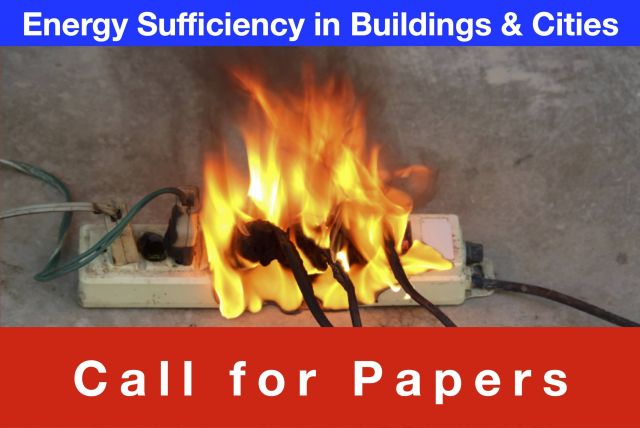
Guest Editors: Tina Fawcett (U of Oxford), Sarah Darby (U of Oxford), Marlyne Sahakian (U of Geneva)
Abstract submission closed on 15 JANUARY 2024
How can conditions be created for decent living standards for all without exceeding planetary limits, during an energy transition and beyond?
This special issue will examine fundamental questions about what is necessary to live a good life: to have the capabilities to satisfy human development, to live enjoyably and to participate fully in civic life. This exploration will include analysing how energy services are embedded in ways of living and working, and the social and environmental consequences of how cities are organised. How can pathways towards energy sufficiency be developed and consolidated for cities, buildings and infrastructures? This implies changes to infrastructures and institutional frameworks, but also changes in consumption, habits, meanings and everyday life dynamics.
More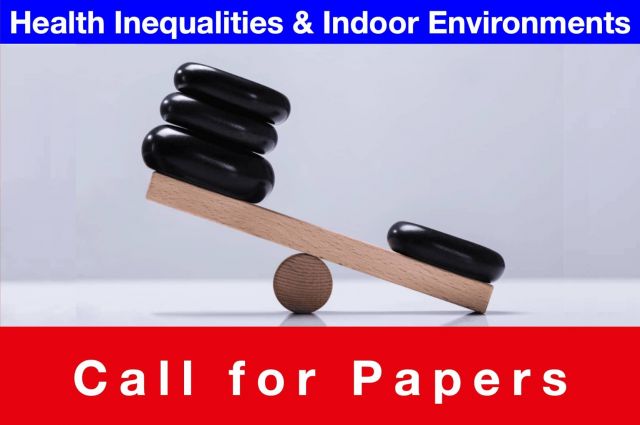
Guest Editors: Anna Mavrogianni and Marcella Ucci (University College London)
Abstract submission closed on 12 JULY 2023
The aim of this special issue is enhance our understanding of the roles that indoor environments play in creating, exacerbating or ameliorating the underlying socioeconomic and health inequalities in the context of climate change. What are the optimum pathways to fulfil the societal need of access to healthy indoor environments for all (e.g. homes, workplaces, schools, etc)?
More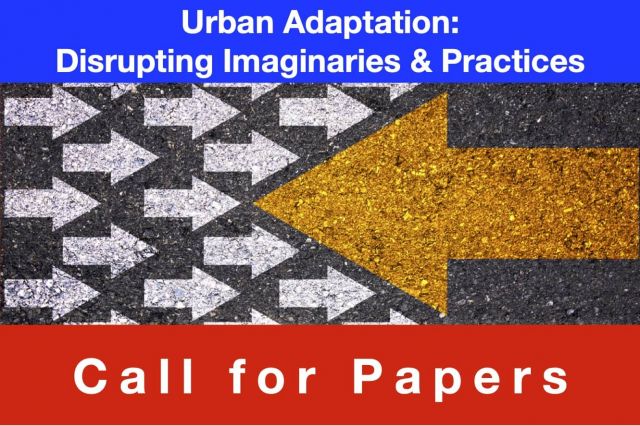
Guest Editors: Vanesa Castán Broto (U of Sheffield), Marta Olazabal (Basque Centre for Climate Change), Gina Ziervogel (U of Cape Town)
Abstract submission closed on 3 MAY 2023
Now more than ever, cities and urban areas are confronted with the urgency of climate change adaptation: increases in temperatures and heatwaves, water and food scarcity, flash floods and sea-level rise, among other impacts.
This special issue aims to enlarge the range of adaptation narratives grounded in experiences from cities worldwide, seeks a more pluralistic, inclusive approach to urban adaptation, and explores ways to identify and disrupt ill-suited approaches.
More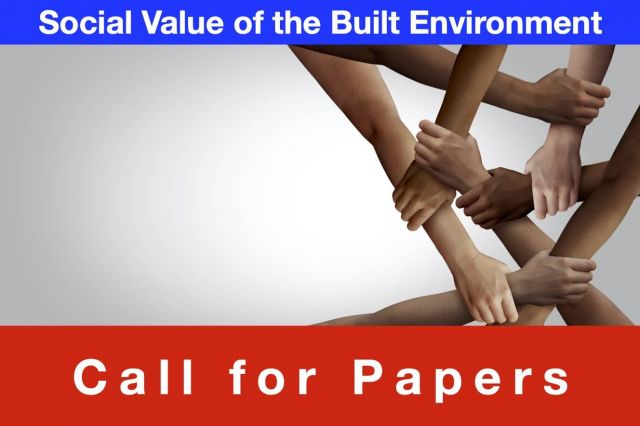
Guest Editors: Flora Samuel (U of Reading) & Kelly J. Watson (Hatch Urban Solutions)
Abstract submissions closed on 1 NOVEMBER 2022
The UN Sustainable Development Goals define many values and actions for environmental, social, economic and climatic issues. Social value can be a driver to radically change built environment practices and outcomes. However, the questions surrounding the social value of the built environment - definitions, inclusion processes, delivery, evaluation and benefits - remain unclear and require further development by governments, industry, researchers and civil society. This special issue explores social value in relation to both placemaking (urban design, architecture and real estate) and construction (procurement and labour) processes.
The emergence of the social value agenda has real potential for the promotion of justice, equality and social cohesion in our built environment. Social value is often defined in different ways by sector, industry and context. A useful working definition is "the economic, social and environmental wellbeing of the relevant area" (PSSVA, 2012).
More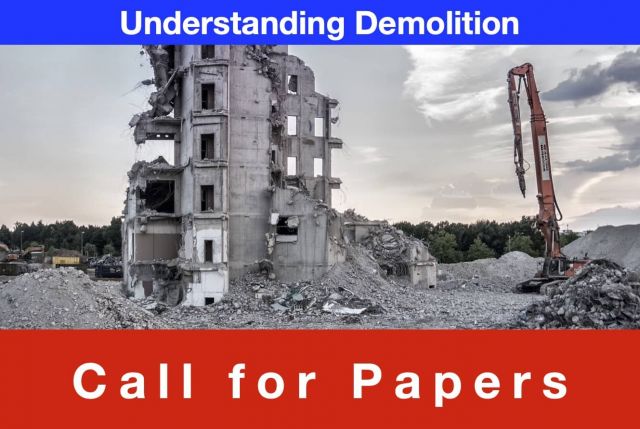
Guest Editor: Satu Huuhka (Tampere U)
Abstract submissions closed on 7 October 2022
Is it environmentally, economically, socio-culturally more sustainable to extend buildings' lives or to build new? What are the specific challenges, potentials, and contributions for retaining existing buildings as opposed to their demolition and replacement? What are the drivers for the demolition of buildings? How can a more sustainable approach be created? How can retention and adaptive change be applied in different conditions and different scales (buildings, neighbourhoods, building stocks)?
Demolition / deconstruction has so far mainly been approached as a technical undertaking of engineering. Building preservation is primarily framed as historic conservation i.e. rarity, architectural quality, historic role, etc). Social scientists (e.g. Gilbert, 2009) have criticised mass-replacement policies and the consequences for underprivileged people who are dislocated. There has been relatively little problematisation both in- and outside of academia whether and when demolition should be performed, apart from Thomsen et al. (2011) and the RetroFirst campaign in the UK by the Architect's Journal (2019).
More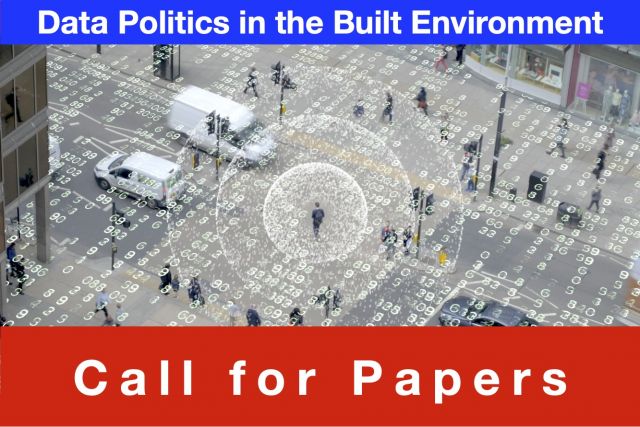
Guest Editors: Andrew Karvonen (Lund U) & Tom Hargreaves (U of East Anglia)
Abstract submissions closed on 26 September 2022
How are data reconfiguring life in buildings and cities? Who are the subjects and objects of data-driven buildings and cities? What are the implications of data-driven buildings and cities for social equity and justice? How do these powers and associated practices align with policies and regulation?
The aim of this special issue is to improve our collective understanding of the practices, politics, and power implications of data-driven buildings and cities. How is data generated, metabolised, and gathered in the built environment? Who designs and governs these data flows and to what end? Who and what is enrolled in the datafication of buildings and cities? What forms and types of data are collected and what gets ignored in data flows at and across different scales? What are the broader implications for social justice and equity? We invite social scientists, planners, designers, building scientists, data scientists, and environmental scientists to shine a critical spotlight on the motivations, methods, and consequences of data-driven buildings and cities.
More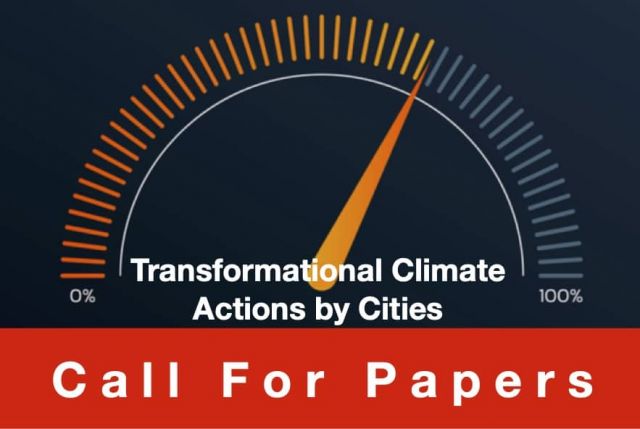
Guest editors: John Robinson & Kim Slater (U Toronto)
Abstract submissions closed on 15 DECEMBER 2021
Are cities' implementation efforts achieving the transformation to realise low-carbon, climate resilient cities? What is the extent and effectiveness of these actions? How can implementation be accelerated?
With their predominantly coastal geographies, rapidly growing populations, and emissions-intensive activities, cities are highly vulnerable, as well as major contributors, to climate change. Fortunately, as "hubs of commerce, culture and innovation" (C40 Cities, 2021), cities are also promising sources of solutions. Taken together, these factors demand a closer examination of the progress and solutions that cities are making to mitigate climate change and adapt to its impacts.
More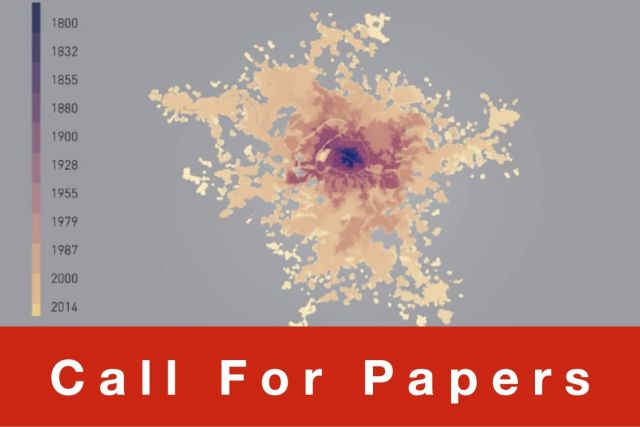
Guest editor: Shlomo Angel (Marron Institute, New York U.)
Abstract submissions closed on 03 DECEMBER 2021
How can urban expansion be undertaken more sustainably, how can expansion be contained and appropriate strategies created for rapid and modest urban growth?
This special issue explores the quantitative and qualitative dimensions of urban expansion; when, where and how expansion can and should be contained; and when, where, and how it can and should be managed in an orderly, inclusive, and sustainable manner. When cities grow in population, economic output and cultural amenities, they need more physical space. Such space can be created through densification (the focus of a recent B&C special issue) and/or by expanding their footprints into the rural periphery. Urban expansion in geographic space is often ill-defined and its measurement and projection into the future are controversial. 'Sprawl' is detrimental to the surrounding countryside, costly in terms of infrastructure, excessive waste of energy and resources, and increased GHG emissions. But the regulatory containment of urban expansion is problematic as it can result in land and house price inflation, making cities less affordable. The speed of urban expansion has consistently been underestimated especially in the Global South where expansions occur in a disorderly and unplanned manner with negative consequences for inhabitants.
More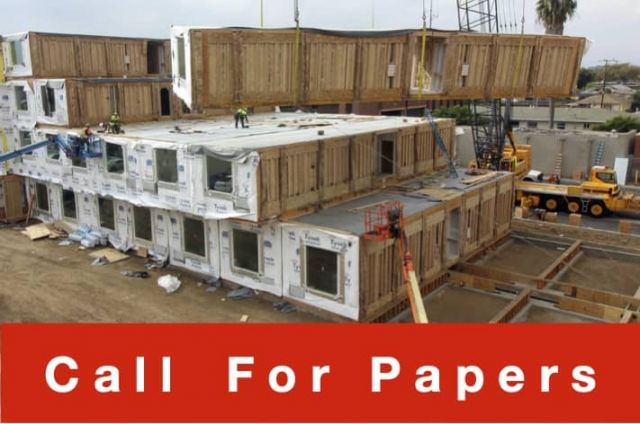
Guest Editor: Stuart D. Green (University of Reading)
Abstract submissions closed on 13 SEPTEMBER 2021
What are the potential unintended consequences of modern methods of construction which are not currently considered?
This special issue investigates the externalities of modern methods of construction (MMC). It examines the dominant narrative used to promote MMC. Although an increased proportion of pre-manufactured value (PMV) may improve narrowly-defined site-based 'productivity', evidence is needed on the associated externalities and potential long-term adverse systemic consequences. What can be learned from previous attempts to modernise the construction process with industrialised methods?
More
Guest editors: Kirsten Gram-Hanssen & Yolande Strengers
Abstract submissions closed on: 07 SEPTEMBER 2021
How are visions, relationships and practices with emerging technologies and energy interacting with gender relations and dynamics in homes?
From aspirations for leisure-enhancing electronic and digital gadgets through to self-cleaning buildings, imaginaries (visions) of technology in the home reflect long-held gendered associations (Berg 1994; Cowan 1989). This special issue investigates how emerging technologies are informed by gender and generate gendered effects in ways that support or undermine energy policies and initiatives. The issue will explore the relationship between gender, emerging technologies and energy from many perspectives, to help realise more gender-inclusive technologies, buildings, policies, programs and outcomes, and to ensure that gender insights can assist in making energy policy more effective by building on everyday life understandings.
More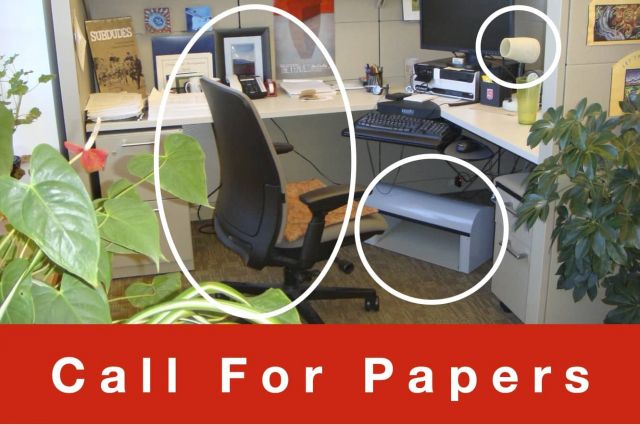
Guest Editors: Ed Arens, Hui Zhang, Rajan Rawal and Yongchao Zhai
Abstract submissions closed on: 06 SEPTEMBER 2021
How can the innovation process be assisted and accelerated for implementing this technology? What leadership can these different actors provide for promoting this transition?
This special issue explores the further development and adoption of decentralized building thermal environmental control, in which occupants can create and control their local thermal environments with personal devices while the central space conditioning (HVAC) is scaled back. This approach to personal control promises to make a greater proportion of a building's occupants comfortable, while at the same time reducing the energy- and system costs of a central HVAC system.
More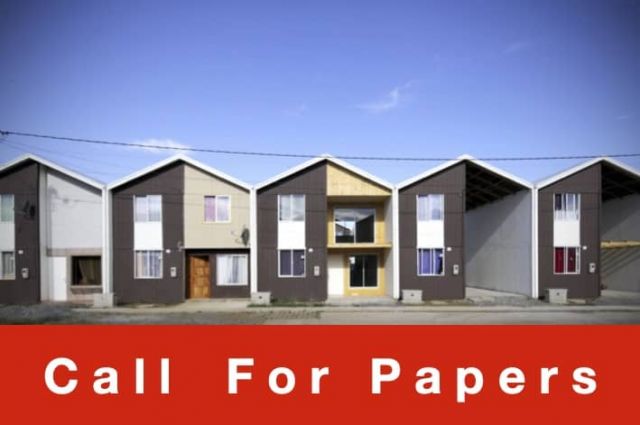
Guest Editors: Sofie Pelsmakers (Tampere University) and Elanor Warwick (Clarion Housing)
Abstract submissions closed on 7 June 2021
Over the past 40+ years, the size of urban dwellings has diminished in many Western and Asian countries, resulting in negative impacts on residents' needs and activities (Park, 2019; Tunstall, 2015). At the same time, an increasing range of activities is expected to be performed at home. One set of possible solutions involves increasing the adaptability of spaces within the dwelling. Other solutions may reconsider the relation between domestic privacy and public cohabitation / shared facilities. Original research, policy analysis, methods and synthesis papers are sought that investigate, analyse and connect different aspects and/or disciplines of adaptable living environments (i.e. inhabitants, the individual dwelling, the housing block, spaces adjacent to homes and their neighbourhood).
MoreLatest Peer-Reviewed Journal Content
Urban verticalisation: typologies of high-rise development in Santiago
D Moreno-Alba, C Marmolejo-Duarte, M Vicuña del Río & C Aguirre-Núñez
A public theatre as a living lab to create resilience
A Apostu & M Drăghici
Reconstruction in post-war Rome: transnational flows and national identity
J Jiang
Reframing disaster recovery through spatial justice: an integrated framework
M A Gasseloğlu & J E Gonçalves
Tracking energy signatures of British homes from 2020 to 2025
C Hanmer, J Few, F Hollick, S Elam & T Oreszczyn
Spatial (in)justice shaping the home as a space of work
D Milián Bernal, J Laitinen, H Shevchenko, O Ivanova, S Pelsmakers & E Nisonen
Working at home: tactics to reappropriate the home
D Milián Bernal, S Pelsmakers, E Nisonen & J Vanhatalo
Living labs and building testing labs: enabling climate change adaptation
J Hugo & M Farhadian
Energy sufficiency, space temperature and public policy
J Morley
Living labs: a systematic review of success parameters and outcomes
J M Müller
Towards a universal framework for heat pump monitoring at scale
J Crawley, L Domoney, A O’Donovan, J Wingfield, C Dinu, O Kinnane, P O’Sullivan
Living knowledge labs: creating community and inclusive nature-based solutions
J L Fernández-Pacheco Sáez, I Rasskin-Gutman, N Martín-Bermúdez, A Pérez-Del-Campo
A living lab approach to co-designing climate adaptation strategies
M K Barati & S Bankaru-Swamy
Mediation roles and ecologies within resilience-focused urban living labs
N Antaki, D Petrescu, M Schalk, E Brandao, D Calciu & V Marin
Negotiating expertise in Nepal’s post-earthquake disaster reconstruction
K Rankin, M Suji, B Pandey, J Baniya, D V Hirslund, B Limbu, N Rawal & S Shneiderman
Designing for pro-environmental behaviour change: the aspiration–reality gap
J Simpson & J Uttley
Lifetimes of demolished buildings in US and European cities
J Berglund-Brown, I Dobie, J Hewitt, C De Wolf & J Ochsendorf
Expanding the framework of urban living labs using grassroots methods
T Ahmed, I Delsante & L Migliavacca
Youth engagement in urban living labs: tools, methods and pedagogies
N Charalambous, C Panayi, C Mady, T Augustinčić & D Berc
Co-creating urban transformation: a stakeholder analysis for Germany’s heat transition
P Heger, C Bieber, M Hendawy & A Shooshtari
Placemaking living lab: creating resilient social and spatial infrastructures
M Dodd, N Madabhushi & R Lees
Church pipe organs: historical tuning records as indoor environmental evidence
B Bingley, A Knight & Y Xing
A framework for 1.5°C-aligned GHG budgets in architecture
G Betti, I Spaar, D Bachmann, A Jerosch-Herold, E Kühner, R Yang, K Avhad & S Sinning
Net zero retrofit of the building stock [editorial]
D Godoy-Shimizu & P Steadman
Co-learning in living labs: nurturing civic agency and resilience
A Belfield
The importance of multi-roles and code-switching in living labs
H Noller & A Tarik
Researchers’ shifting roles in living labs for knowledge co-production
C-C Dobre & G Faldi
Increasing civic resilience in urban living labs: city authorities’ roles
E Alatalo, M Laine & M Kyrönviita
Co-curation as civic practice in community engagement
Z Li, M Sunikka-Blank, R Purohit & F Samuel
Preserving buildings: emission reductions from circular economy strategies in Austria
N Alaux, V Kulmer, J Vogel & A Passer
Urban living labs: relationality between institutions and local circularity
P Palo, M Adelfio, J Lundin & E Brandão
Living labs: epistemic modelling, temporariness and land value
J Clossick, T Khonsari & U Steven
Co-creating interventions to prevent mosquito-borne disease transmission in hospitals
O Sloan Wood, E Lupenza, D M Agnello, J B Knudsen, M Msellem, K L Schiøler & F Saleh
Circularity at the neighbourhood scale: co-creative living lab lessons
J Honsa, A Versele, T Van de Kerckhove & C Piccardo
Positive energy districts and energy communities: how living labs create value
E Malakhatka, O Shafqat, A Sandoff & L Thuvander
Built environment governance and professionalism: the end of laissez-faire (again)
S Foxell
Co-creating justice in housing energy transitions through energy living labs
D Ricci, C Leiwakabessy, S van Wieringen, P de Koning & T Konstantinou
HVAC characterisation of existing Canadian buildings for decarbonisation retrofit identification
J Adebisi & J J McArthur
Simulation and the building performance gap [editorial]
M Donn
Developing criteria for effective building-sector commitments in nationally determined contributions
P Graham, K McFarlane & M Taheri
Join Our Community

The most important part of any journal is our people – readers, authors, reviewers, editorial board members and editors. You are cordially invited to join our community by joining our mailing list. We send out occasional emails about the journal – calls for papers, special issues, events and more.
We will not share your email with third parties. Read more

Latest Commentaries
COP30 Report
Matti Kuittinen (Aalto University) reflects on his experience of attending the 2025 UN Conference of the Parties in Belém, Brazil. The roadmaps and commitments failed to deliver the objectives of the 2025 Paris Agreement. However, 2 countries - Japan and Senegal - announced they are creating roadmaps to decarbonise their buildings. An international group of government ministers put housing on the agenda - specifying the need for reduced carbon and energy use along with affordability, quality and climate resilience.
Building-Related Research: New Context, New Challenges
Raymond J. Cole (University of British Columbia) reflects on the key challenges raised in the 34 commissioned essays for Buildings & Cities 5th anniversary. Not only are key research issues identified, but the consequences of changing contexts for conducting research and tailoring its influence on society are highlighted as key areas of action.